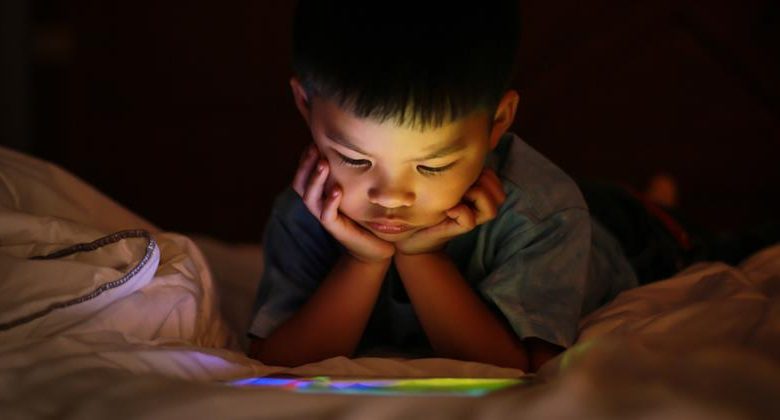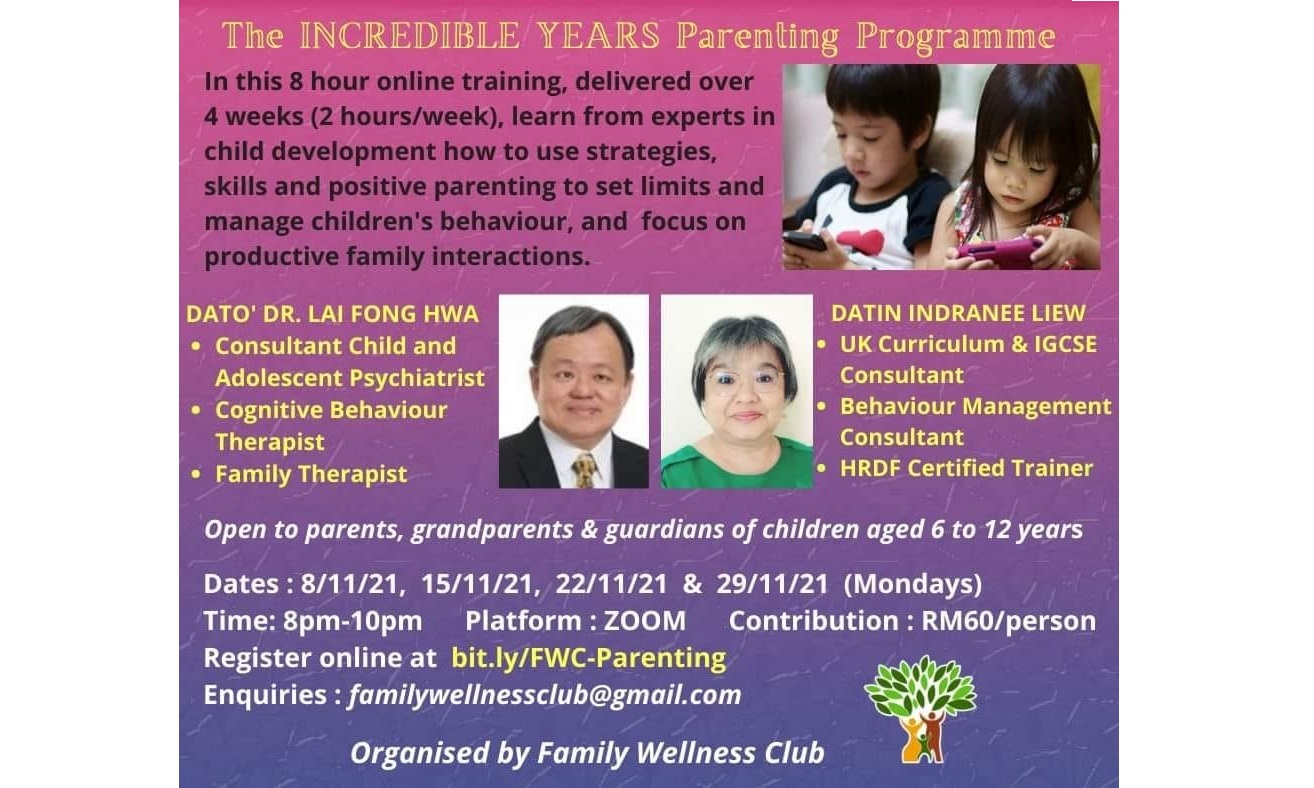Excessive Screen Time Detrimental For Children


Everyone has adapted to a new culture of doing things remotely when they are forced to work from home after an unexpected turn of events in the midst of a pandemic.
This has resulted in adults and children spending more time in front of screens, from work and school purposes to entertainment and socialisation. While it is necessary to some extent, excessive screen time can also interfere with their wellbeing.
For instance, Behaviour Management Consultant, Datin Indranee Liew, explained that prolonged usage of electronic devices can strain the relationship between parents and children.


“Parents themselves are glued to their devices at home, making them poor role models. Absence of communication and socialisation will harm the family bond and contribute to unfavourable effects on school and adult life.
“COVID-19 has led to learning loss among school students due to closure of educational institutions. Adolescents lose in-person socialisation which is the fundamental rule of developing their social competence. Preschool and kindergarten children need socialisation to boost their people skills,” she highlighted.
As beneficial and convenient as E-learning is especially during such uncertain times, it is unable to provide a conducive learning environment for young children who need to develop literacy and numeracy skills.
“Teachers are able to teach letter and number recognition virtually, but handwriting requires writing practice as well as on the spot correction,” Datin Liew stressed.
Not only that, the UK Curriculum and IGCSE Consultant added that toddlers and preschoolers who sit in front of TV and tablets are prone to delayed speech and gross motor skill deficits (e.g. unable to walk or climb stairs steadily).
Sharing her experience with Ipoh Echo, Datin Liew observed that some children as old as four to six years old have had difficulty climbing stairs or the ladder on the slide in the playground. Others had trouble catching or throwing balls.
With that said, how can parents help overcome the detrimental effects of their children’s long hours in front of screens?
‘A family that eats and plays together stays together’.
One of Datin Liew’s suggestions is to organise bonding session activities regularly to build a healthy family relationship.
“Eat at least one meal a day together, and take an interest in your kids’ lives; ask them about their day. Parents can also do something out of the box like print out interesting topic cards in a jar and anyone can pick one and talk about the chosen topic.
“For a more exciting time, they can play board games together once a week or choose a computer game to play together. To add more fun, have a picnic at a park or let your kids choose the menu for food/drinks when at a restaurant,” she explained.
Although it might not be able to wholly replace interactions with peers, healthy parent-child communication can also help build a child’s social skills.
However, before jumping into conventional reasoning, Consultant Child and Adolescent Psychiatrist and Family Therapist Dato Dr Lai Fong Hwa pointed out that parents should also widen their lens to see beyond the widespread assumption and understand the reason behind their children using devices.


“How it affects them depends on what they are doing on their devices.
“In my work, I have asked parents to compare the interaction they have with their children now with their own interactions with their parents when they were teens. Most of the time, their answer is somewhat the same. Instead of spending time on electronic devices which were not available then, they would be somewhere else spending time with their friends.”
He opined that parents need to view the use of devices through a more neutral lens.
“Today, devices have taken over football, carrom, board games, etc. Imagine how adults together would feel if all these recreational outlets were taken away.”
It should be noted that the use of digital devices does not inherently bring negative consequences. While overdependence is certainly an issue, digital entertainment is a common way for many to destress and temporarily take their minds off their problems.
“Of course it is also important that parents need to be on the lookout for abuse of devices by their children such as watching pornography and engaging in unhealthy websites that promote violent games”
In this age of digital dependence, especially with the necessity for the practice of home-based teaching and learning due to the pandemic, children are introduced to the use of digital devices younger than ever before. Parents must therefore step up and shoulder their own share of responsibility in ensuring optimal development of their children.
However, parents have to deal with misbehavior and even aggression in some children when they try to limit their children’s use of the devices.
To help parents tackle the struggle, the Family Wellness Club will be hosting The INCREDIBLE YEARS Parenting Programme with two experts in child development in an online parenting course of 8 hours, delivered over 4 weeks (2 hours/week).
The programme will focus on productive family interactions and on how parents and guardians can set limits for young children and manage their behaviour.
The Programme is open to parents, grandparents and guardians of children aged 6 to 12 years. Beginning from 8th November, all details are listed in the flyer below.
Register online at https://bit.ly/FWC-Parenting and for more information, email familywellnessclub@gmail.com
Gisele Soo
=============================
Get your local news fast. Download the Ipoh Echo App on your mobile. Available on both Google Playstore and Apple Appstore.




